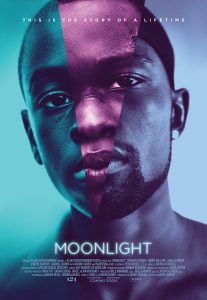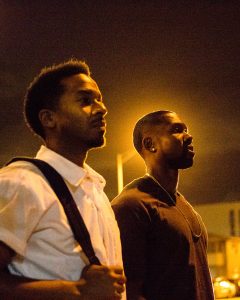
In a Sociology class years ago, the professor, one of the most brilliant minds I’ve ever had the pleasure of meeting, waxed philosophically on morality. He challenged the class to question who they believe to be moral, most responding with everyday citizens and leaders. He posed that certain drug dealers could exhibit the strongest of a moral compass. Many will scoff at this notion, as the mere thought of an inherently corrupt individual having morals is incredulous. Had those morals guided them as they do others, they wouldn’t be dealing drugs, plain and simple. Except it’s not that simple. Those who deal drugs generally do it to survive, not out of pleasure. For whatever reason, be it a troubled past, a lack of education, or the result of class warfare, they have entered into a seedy trade in order to make ends meet. That doesn’t mean they’ll sell to anyone. My professor’s example was that of a drug dealer who denies a recovering addict a chance to relapse, as he/she feels that person deserves a second chance.
This discussion came to mind during my screening of “Moonlight,” specifically during a sequence in which a drug dealer confronts a woman on her drug use due to her position. She is Paula (Naomie Harris), the mother of a neglected boy in Little (Alex Hibbert). The drug dealer confronting her is Juan (Mahershala Ali), who found her son weeks prior hiding in a boarded-up motel room. He immediately took a shining to the shy kid, breaking him out of his shell and discovering his fears. He knows without asking that the boy hates his mother in the way he fidgets in his seat when her name is brought up. He can see the fear in the little boy’s eyes, unsure of himself due to an uncaring mother and and equally uncaring society. When he sees the boy’s mother toking away, he loses control.

This is one of many powerful dramatic sequences in the film, all of which are built up to brilliantly! Barry Jenkins approaches the material (based on a story by Tarell Alvin McCraney) with quiet reserve, focusing more on body language than dialogue. He doesn’t litter his script with shouting matches to denote the drama, but simple human reactions to carry the weight. Little’s near-mute demeanor is given gravitas by his subtle movements: the way he slinks his head, how he’s constantly fidgeting, and the way he looks quizzically when inspired. Juan is similar to him in ways, more outgoing but soft-spoken. He doesn’t say much, relying on his benevolent girlfriend, Teresa (Janelle Monáe), to do the bulk of the talking. When he does speak, he does so with impact. Through anecdotes passed down from his grandmother to his own theories on life, he imparts much-needed wisdom into Little. He builds up his confidence, reminding him that nobody but himself can determine who he is going to be. There is one tender moment in which a beaten-down Little meekly asks what a faggot is. You can see the pain swell up in Juan’s eyes, knowing local bullies have bestowed such a hateful slur upon a confused, innocent child. With tears strolling down his face, he reassures Little that he is not a faggot. If he is gay, then that’s what he is, but a faggot he is not. Faggot is deragotary and there’s nothing derogative about being gay.
These quiet, tender moments give credence to the outbursts. They represent fits of rage amidst anger and confusion. They erupt due to being bottled-up, giving way to more power. When Juan shouts at Paula for disappointing her son and herself, his hostility resonates due to being built upon. When she fires back, we know it’s out of both anger and fear, the latter of which is a result of her incompetence as a mother. She shoots down Juan for being nothing more than a drug dealer, no better than her, and you can see in his eyes that there’s some truth there. He realizes that, no matter how much love he bestows upon Little, he’s not the father figure he needs. It crushes him to answer honestly when the boy asks if he deals drugs. He deems himself no better, despite his moral compass being of great value.

This is not Juan’s story, however, but Little’s. It a coming-of-age tale spanning the three most imporant cycles in this boy’s life: childhood, teenage years, and early adulthood. Each chapter is delineated by the boy’s given nickname. Little when he’s a child, as it reflects his ignorance to the world and how he feels in it. Black (Trevante Rhodes) when he’s a teenager, as the color of his skin unfortunately defines him to the general public. His struggles are benighted by the common belief that he is nothing more than a thug because of his race, failing to realize it’s cultural surroundings and upbringing that are to blame. Chiron (Ashton Sanders) as an adult as he finally embraces his birth name, feeling he’s lived up to it. He has now found himself, or so he thinks, as a drug dealer in Atlanta. He is more confident, reinventing himself both physically and mentally, but is still plagued by nightmares and insecurities. He may have found his rightful name, but he hasn’t truly found himself yet. Do we ever really? The chapter titles themselves are flipped for two and three; the former to embrace Chiron’s slow grasp on his identity and the latter to call back to a familiar nickname.
His biggest insecurity comes in the form of his sexuality. Despite Juan’s reassurance, society has rejected his homosexuality as nothing more than a sin (this takes place in the eighties, after all), causing him to shroud it in secrecy. A childhood friend in Kevin (Jaden Piner as the child, Jharrel Jerome as the teenager) brings out his true self, giving him the sexual awakening he so desired. This is squashed almost immediately after bullies force the two to fight, Kevin’s denial of their feelings doing more damage than his fists. A backlash lands Black in jail, where he finds Chiron.

Chiron, much like Juan, hides behind a persona. Grills and a muscular physique protects him from harm, sending off warning signals to those foolish enough to start something. It gives him confidence, but it’s misguided and limp. It is not until he receives a call from Kevin (André Holland) that he is awoken from his despondence. Just like with Juan, there is a heartwrenching agony in his eyes when a revelation is presented that is just as impactful as when he shouts at his mother for her years of mental torment.
It is this keen awareness of humanity that drives “Moonlight.” Jenkins has a gentle touch with the characters, presenting them as flawed as the society surrounding them. He challenges the characters to face their demons and to question if their shortcomings are a result of society or themselves. We the audience know it’s a mixture of both, but too are challenged to question the severity of each. There’s no doubting that the mental anguish that has pummeled Chiron throughout his life has stunted his emotional development. However, is he at fault for stunting himself out of fear of failure and rejection? Has he succumbed to the labeling theory made famous by Howard Becker, in that he has accepted the label given to him throughout his life? Or is he content to live out a self-inflicted label to protect his real persona from an abhorrent society?
It is through craftsmanship and compassion that makes “Moonlight” a masterpiece of the human spirit! Exquisite cinematography by James Laxton paints the uncertainties of life with bleak colors, counteracting them with comforting blues that help camoflauge a frigthened Chiron. An elegant score by Nicholas Britell matches perfectly the emotions on display: love, fear, anger, and sorrow. It is low-key, just as Chiron is, only escalating when tensions run high. Tremendous performances from a multitude of actors seamlessly portraying the same character help with the smooth flow. Never once did I feel as if I was watching a different character in Chiron’s three life cycles; I simply witnessed his blossoming. Richard Linklater filmed “Boyhood” over the course of twelve years to authentically portray the development of life, whereas Barry Jenkins coyly tricked an audience into believing three actors were one in the same. Kudos to all involved on pulling off this near-impossible feat!
Final Rating: A+
